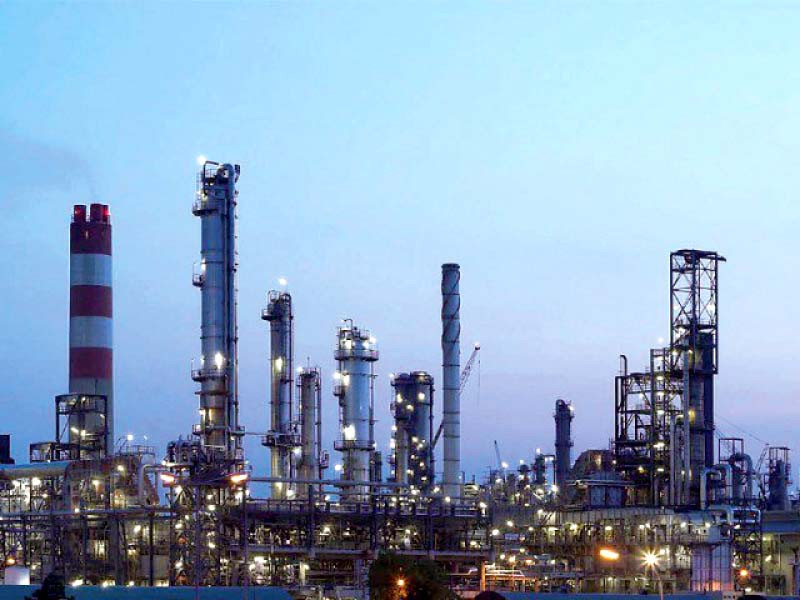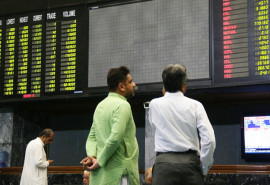
The Cabinet Committee on Energy (CCOE) has adopted a diverse approach to deal with two sectors of the same industry; power and refining.
Pakistan’s refining sector meets the strategic requirements of the country as it also produces jet fuel for airlines and the air force. However, for a second time now, the CCOE has refrained from giving a clear approval to the refinery policy as it raised observations on the proposed 10% tariff incentives for oil refineries. The reservations were made despite the Petroleum Division sharing a detailed break-up of the refineries’ deemed collection and their investment.
Meanwhile, a power plant in the private sector was given the go-ahead to make payments despite clear advice from the National Accountability Bureau (NAB) to recover dues from all 12 IPPs, including Nishat Chunian, under Power Policy 2002.
NAB had established a case against Nishat Chunian Power Ltd due to the determination of tariff at the higher side. It further intimated, “The Ministry of Energy, if so desired, may proceed under Power Policy 2002 after securing the amount of loss caused to the state as established during the above stated NAB investigation in the best interest of the state.”
NAB wanted the government to recover the illegal gains from the IPPs set up under Power Policy 2002 before proceeding further on the process of payments.
However, the CCOE stopped payment to Nishat Chunian while directing the Power Division to make payment to 11 IPPs set up under Power Policy 2002.
Officials, privy to the matter, said that this was the result of a tussle between different groups in the cabinet committee.
The government has also formed a Cabinet Committee on Transport and Logistics and its mandate was to resolve issues of freight policy, transport, and logistics. However, the transport committee intervened in the matters of the Petroleum Division and directed all refineries to submit details of collecting deemed duty.
Hence, the CCOE on one hand dealt with the oil refineries, and on the other was the logistics committee, which was going beyond its mandate. Due to this, the refinery policy went back and forth between the Power Division and CCOE.
Read CCOE turns down hike in gas prices
The Petroleum Division had informed CCOE that oil refineries made the same investment of Rs200 billion, which they collected.
Why oil refineries were allowed to recover deemed duty?
In a letter sent to the committee on transport and logistics, Pakistan Refinery Limited (PRL) managing director said that there is a gross misunderstanding that deemed duty collected by a refinery is meant to be used for investment.
The correct legal status is that refineries entitled to the Tariff Protection Policy are required to create a ‘special reserve’ account in pursuance of directives of the government issued on June 25, 2002.
He said that the special reserve account of a refinery will be credited with that amount of after-tax profit, which is left after the distribution of allowable dividend.
Refineries are required to invest in their expansion and upgrade projects from the special reserve account.
It is important to note that at the start of this policy from 2002 till 2013 refineries were also allowed to offset their losses against the special reserve account.
He said that it is a factual explanation, which clearly shows an incorrect assumption that the total amount of deemed duty collected by a refinery will need to be invested.
A relevant extract of this letter further clarifies as follows, “The main objective of the tariff protection formula was to dispense with the minimum 10% rate of return requirement and provide incentives to oil refineries to operate on a self-financing basis...However, net profit after tax above 50% will be diverted to special reserve to offset any future loss or make an investment for expansion or up-gradation of refineries.”
It is clear that the prime objective of the tariff protection formula was to help the refineries to operate on a self-sustainable basis without any government subsidy.
Subsequently, deemed duty on kerosene, LDO and JP-4 were totally abolished with effect from June 10, 2007, and later effective August 1, 2008, deemed duty on diesel was reduced to 7.5%.
AF Ferguson & Co audited the amount accumulated in the special reserves as per the pricing formula and ENAR Petrotech Services (Pvt) Limited has carried out a technical audit of the installation of isomerisation unit. These audit reports were already submitted.
Interestingly, key stock market brokers have been allegedly making money by manipulating shares of two refineries; Attock Refinery Limited and National Refinery Limited.
The energy ministry informed the CCOE on Thursday that NAB wanted the government to recover the illegal gains from the IPPs including Nishat before proceeding further on the process of payments.
The Petroleum Division started work on the new refinery policy and the first draft was made in 2019 when Nadeem Babar was the special assistant to the prime minister on petroleum.
Read more Pakistan mulls funding options to kick off PSGP
Since that time, there had been manipulation of shares of ARL and NRL on the stock market. The share price of ARL went up to Rs275 from Rs70 and NRL jumped from Rs90 to Rs650.
The shares of these refineries continued going up and down to benefit some key stock market players.
The energy ministry had also informed the cabinet body on energy that it should revise the master agreement signed with IPPs under Power Policy 2002.
On the manipulation of shares, the Securities and Exchange Commission of Pakistan (SECP) said, “The SECP, inter alia, is mandated to maintain fair, orderly and efficient capital markets, promote robust corporate and insurance sectors and protect the rights of investors through beneficial regulations. In order to perform its regulatory functions, SECP regularly carries out inspections, inquiries, investigations and takes such other regulatory actions, as deemed necessary, in accordance with its administered legislation.”
It added, “However, on account of SECP’s operational SOP’s and relevant laws, unless a matter is concluded, we cannot either confirm or deny initiation of any purported action or proceedings against any regulated entity or person. Please note that any final conclusion, decision or enforcement action, if any, is made public through placement on SECP’s website for public information, subject to the policy of the Commission and permissibility under the law.”
Published in The Express Tribune, September 19th, 2021.
Like Business on Facebook, follow @TribuneBiz on Twitter to stay informed and join in the conversation.


1731479848-0/Elon-Musk-and-Vivek-Ramaswamy-and-Donald-Trump-(1)1731479848-0-165x106.webp)















COMMENTS (2)
Comments are moderated and generally will be posted if they are on-topic and not abusive.
For more information, please see our Comments FAQ